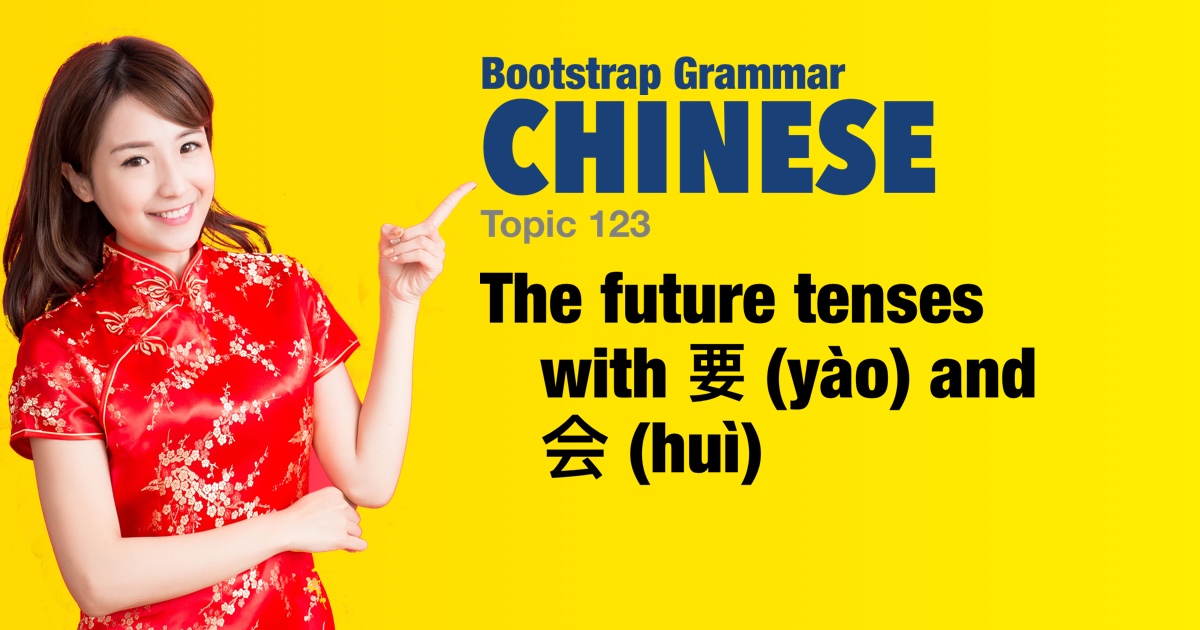Chinese grammar - The future tenses with 要 (yào) and 会 (huì) |
|||
|
|||
The simple future tense can be expressed using auxiliary verbs such as 要 (yào), 会 (huì), and 将 (jiāng). • 要 (yào) is typically used to express future intention. — Recall that 要 can also explicity mean 'to want'. • 会 (huì) is used to indicate that something will happen in the future. It often implies a prediction or expectation. • 将 (jiāng) is more formal and is often used in written Chinese to indicate future actions. |
| Examples: | |
|
我要去北京。
wǒ yào qù běijīng. I will go to Beijing. |
|
|
我们要开会。
wǒmen yào kāihuì. We are going to have a meeting. |
|
|
他要来我家。
tā yào lái wǒ jiā. He is going to come to my house. |
|
|
我会学习中文。
wǒ huì xuéxí zhōngwén. I will study Chinese.
|
|
|
她会打电话给你。
tā huì dǎ diànhuà gěi nǐ. She will call you. |
|
|
明天会下雨。
míngtiān huì xiàyǔ. It will rain tomorrow. |
|
|
你明天会去哪里?
nǐ míngtiān huì qù nálǐ? Where will you go tomorrow? |
|
|
他们会来参加聚会吗?
tāmen huì lái cānjiā jùhuì ma? Will they come to the party?
|
|
|
我们会开会吗?
wǒmen huì kāi huì ma? Are we going to have a meeting? |
|
|
他要买什么?
tā yào mǎi shénme? What is he going to buy? |
|
|
你们会一起去旅行吗?
nǐmen huì yì qǐ qù lǚxíng ma? Will you travel together? |
|
|
她要带什么来?
tā yào dài shénme lái? What is she going to bring? |
|
|
明天会下雨吗?
míngtiān huì xiàyǔ ma? Will it rain tomorrow? |
|
|
你会准备好所有东西吗?
nǐ huì zhǔnbèi hǎo suóyǒu dōngxī ma? Will you prepare everything? |
|
|
我们会先去日本,再去韩国。
wǒmen huì xiān qù rìběn,#zài qù hánguó. We will first go to Japan, then to Korea.
|
|
 |
|


 Using
Using 
